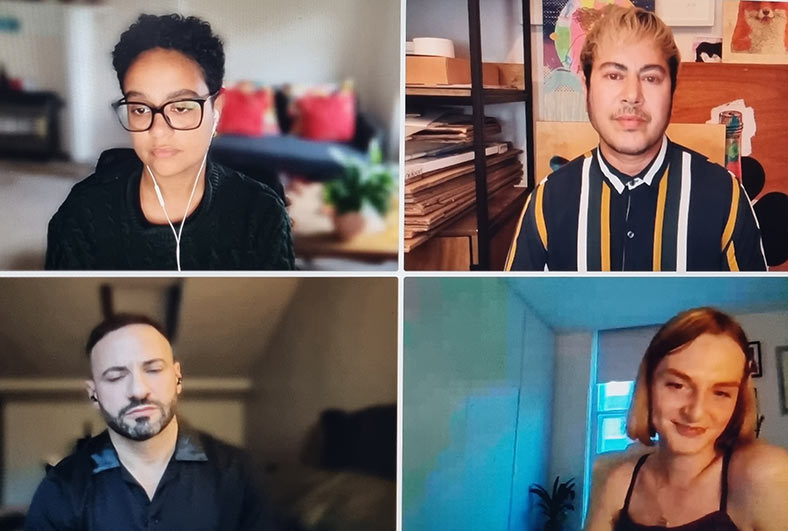Blog / Events / Journalists
How the media can represent the trans community fairly

The media has a responsibility to report on, and for, every community, but some sections of the mainstream press in the UK have come under fire this year for insensitive portrayals of the trans people. The British Society of Magazine Editors held a virtual event a few weeks ago to discuss the best ways for the media to engage with the community and report on them fairly.
Cliff Joannou, editor-in-chief of Attitude magazine, led the event and was joined by Nic Crosara, deputy editor of Diva magazine, Fox Fisher, an artist, author and film-maker and Jess Hacker, senior reporter at Pulse.

Current problems
The panel highlighted concerns there has been a sharp increase in the amount of negative articles regarding trans people and issues related to the community. Fox said that ‘In June 2023, the Mail produced 115 articles around trans issues and 87% were negative, compared to January 2013 where there were six articles and none were negative’. Nic believes this is due to increased visibility from 2013 onwards, when shows like ‘Orange is the New Black’ – featuring trans characters – were first broadcast.
Fox feels that a lot of misinformation and fear mongering is taking place in the media. Nic spoke of a fixation of the media on trans bodies, and that this was being done in a negative way rather than celebrating them. Jess believes that the end result will be trans people refusing to talk to the media. ‘Lots of trans people won’t want to talk to journalists. They don’t trust the media now as a result’.
Ways to restore trust
Despite the feeling from the panel that the trans community is less trusting in the media now, they believe there are solutions and places that can help with restoring that. One is TransMediaWatch, which is an organisation that is designed to help the media when covering trans issues and stories. Another is All About Trans which has been meeting with editorial teams to have conversations behind the scenes and help them with any coverage.
There are also some more general tips and advice to consider. Fox said to be aware of misgendering someone or using the incorrect pronouns. It’s also good to avoid sensationalism as well and let the person check the article before it’s published, too. In regards to when the article is shared on social media, Nic advised deleting hateful comments or perhaps just turning them off. Jess felt that it’s best to not make a trans issue or story the news hook for any tweet that you put out.
Telling future stories and issues
‘Editors have a massive power to change hearts and minds’ – Fox’s statement could ring true for a myriad of issues but especially around the trans community and their current media coverage. Nic believes there needs to be a lot more focus on ‘trans joy’; that stories don’t have to be about just pain and fear, and that anyone journalists speak to needs to be able to express themselves authentically.
Jess concurred that it’s an oversight on the part of editors to not be writing positive trans stories. She believes that it could have a really big impact and help young queer people if there were more positive stories out in the media. She feels there is also a lot of focus on the transition itself rather than talking about life afterwards, which could be a better angle to approach it from.
Fox pointed out that very little coverage was given to the TransPride march in Brighton this year, which celebrated its 10th anniversary and had 30,000 people taking part. Jess added that it’s good to look for trans journalists to write for your publication, but to make sure that you aren’t just using them to cover trans stories. Trans people deserve to be represented with respect and truth.
For more on how the media can report on the LGBTQ+ community with respect, read our previous piece ‘How the UK media can support the transgender community‘.




